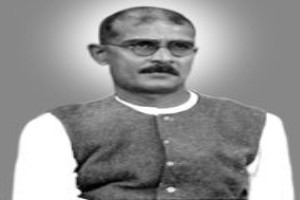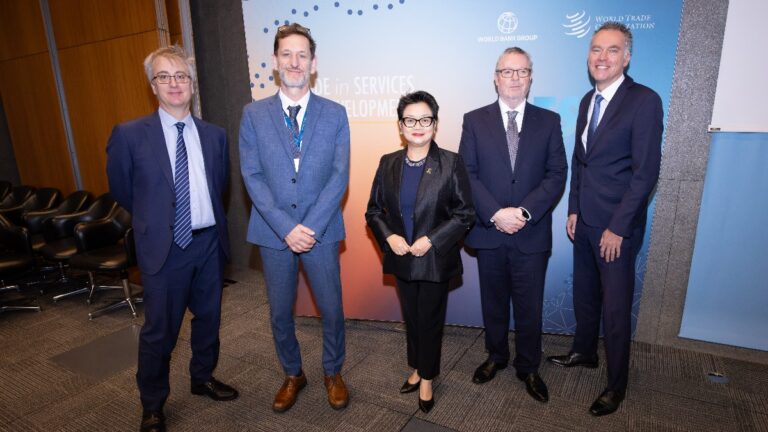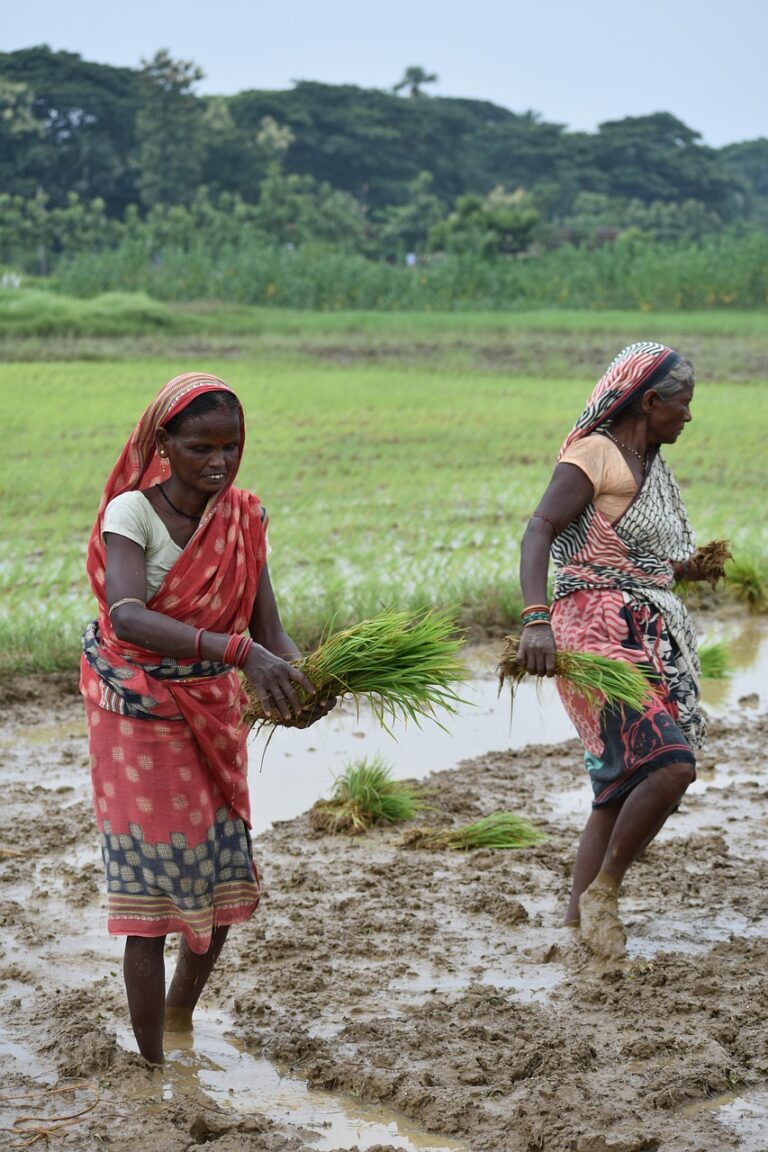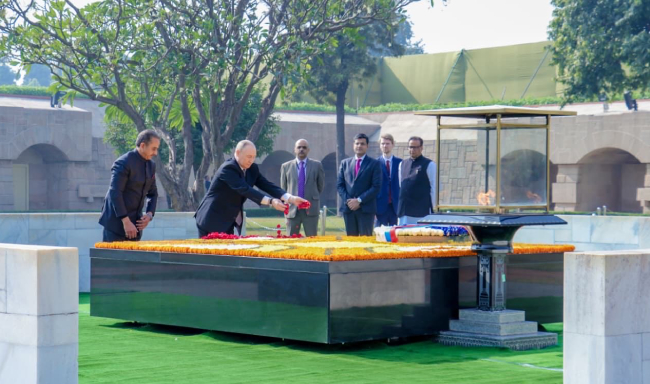
With Sardar Patel in Tamilnad – Part 3
 By Mahadev Desai*
By Mahadev Desai*
(This article was published in Young India on September 12, 1929)
They had no time left for these local problems, before the more urgent ones of party and communal warfare
Plain Talk to MLCs
And that brings me to the woeful state of things prevailing in many parts of the presidency. The elections to the local bodies and the Municipal Councils had been, we were told, all prolific sources of corruption, and there was not a speech where the Sardar had not to advert to the circumstance. Added to this was the general indifference of the so-called representatives to the welfare of their constituencies. They had no time left for these local problems, before the more urgent ones of party and communal warfare. The cup of the Sardar’s indignation was full as he went through parts of the Tiruchengodu taluka surrounding the Gandhi Ashram, Pudupalayam. Thousands of men, women and children are suffering from scarcity of water and there is a general famine in those parts. There is no fodder for cattle, and trees are being denuded of their leaves and branches to feed the poor skeletons. Hundreds invade Shri Rajagopalachari’s Ashram at Pudupalayam for cheap grain, and the ‘touchables’ are angry that the relief should be reserved for the ‘untouchables’. ‘Gandhi wells’ were dug in the area by the Gandhi Seva Sangh, but all of them are dry. The Chief Minister of Madras hails from this very Taluka. But neither the MLC’s nor the Chief Minister seem to have done anything to relieve the misery of the distressed. It was no place to talk to these people about the sufferings and exploits of the peasants of Bardoli. Whom could they refuse to pay the revenue? They had to pay the revenue to their Mittadar who was scarcely in a better plight than they. As someone asked one of the women who had come with her yarn to the Gandhi Ashram yarn depot whether she knew Shri Vallabhbhai’s name, she gave a reply which cannot be forgotten: “What do I care who he is? I must have something to fill my belly. That’s all I know.” On the day we visited the village ten families had left for Penang in search of employment. It is in this area that Shri Rajagopalachariar with a small band of co-workers is working, – a target on the one hand of the unaccountable wrath and abuse of some non-Brahman leaders, and on the other of the indignation of ignorant and superstitious peasants who attribute the anger of the gods to his refusal to recognise untouchability, and threaten him with boycott and non-cooperation. I take a long extract from the Sardar’s speech at Pudupalayam for the benefit as well of those immediately concerned as of the MLC’s in other provinces:
“The real remedy is in your hands. You are suffering because of your ignorance. Round about Salem district there is plenty of water, there are rivers flowing full of water, and people in Tanjore who get that water for their wet lands suffer from excess of water. Why should you then be without any water at all? You may not know but I may tell you that you have paid and made provision for a famine of this nature and there is a big reserve fund at the disposal of Government. It is the Famine Insurance Fund and you have all insured against famine and contributed every year towards the Fund. There are many lakhs of rupees to your credit lying with the Government of Madras. Even during the famine years you are being charged for that insurance. But you know nothing about it. You do not even ask for help. You make no noise. You do not agitate. No one outside your area knows that you are suffering from famine. Even your own people this presidency seem to know nothing about you and Government of course can know nothing. Well, we had a terrible famine two years ago in the shape of the floods and I tell you what we did. The distressed people in Gujarat asked Government to give them something from the Insurance Fund at their disposal. Government said it was a fund for insurance against famine but not against floods. The people said it was worse than famine. And the Government had at last to yield and to pay one crore and twenty five lakhs of rupees. Why don’t you get your money? You must not be sitting still and crying for charity. Government is intended for helping you in such matters. If Government does not help you in such a crisis, what is the need of having such a Government? But how can I blame Government if it knows nothing about your suffering? I don’t know if people ever came here asking for votes. Well, they are sitting in the Council. Do they know anything about your distress? Go and tell them. You need not even go there, send them a representation and they are bound to come. Tell them what you are suffering from, show them your starving cattle, your waterless wells, and the number of houses which are being vacated by families migrating to Penang in search of employment. If your representatives do not come, ask them to resign. If you want to cross a river and your boat is in charge of a man who does not know how to play the oars, you are sure to go to the bottom. But you must not despair. Learn to agitate, go to the Collector, bring him here and acquaint him with your condition. How is the world to know that you are suffering? If you fail after having informed Government and after having sufficiently agitated, we shall think of other remedies. There is no wrong without a remedy. Government is bound to advance you money, bound to advance you doles and loans, and to open famine relief works, and make water available.” And so on and so forth in Lokmanya Tilak’s best manner.
Also read: History Recalled: “What is the use of your oratory? It has no meaning,…”
It is these conditions that stirred the Sardar to indignation and from every platform he asked the fomenters of divisions and dissensions how their propaganda of self-respect based on hatred was going to help these poor people. “In heat and drought only the cactus seems to flourish, and our public life will be covered all over with cactus if we do not clear it and refresh it with the water of goodwill and harmony,” he said at Salem. “I have described to you conditions which should draw from us tears of blood. There is time yet to unite. Stop that propaganda for God’s sake and organise the people.”
The Future
But let not the read run away with the thought that the forces of hatred and dissension have got the upper hand throughout the province and that there is no hope for the future. At all the places he visited – Kumbakonam, Trichinopoly, Madura, Dindigul, Salem – the Municipal Boards presented him with addresses of welcome, and thousands who heard him hailed his message as one full of hope. The Brahman conscience is also slowly being aroused. For instance the Sardar’s utterances on the land revenue question attracted the attention of a Brahman mirasdar of Tanjore who came with his account books and a load of settlement reports to show how oppressive the Madras land revenue policy had been. The speeches carried him off his feet and he followed us right up to Salem, perhaps sitting the first time in his life side by side with the Panchamas in the Ashram at Pudupalayam. At the close of the meeting he was moved to make a speech in which he said: “I have been taking the name of God all my life, but I see God face to face today. He has incarnated Himself in the suffering ryots and so-called untouchables sitting here; and there can be no true worship of God without the relief of the sufferings of the people.” In Madura one felt as though something of the fragrance of 1921 had yet been lingering. There was Shri Vaidyanath Iyer who yet swore by the old non-co-operation programme, and though domestic worries demanded from him the patience of a Job and the endurance of a Socrates, he would be the first to take a plunge if again the bugle were to be sounded. We met in the Khadi Vastrayalam, which was doing good business, a lady who had been a regular Khadi wearer and spinner lending her helping hand wherever it was wanted. There was Shri Vedaram Iyer still keeping his morning hours sacred to the spinning wheel, and there was an old Musalman friend keeping the flag flying in a neighbouring village with his faith undimmed all these years. Even now you find numerous Vakils and Municipal Councillors wearing Khadi habitually, and the Hindi prachar workers, all Khadivalas, distributed in various parts of the province, are all more or less workers in the same cause. There are in Madras workers like Shri D.R. Mahadev Iyer living on a miserable pittance and carrying on constructive work, and men like the Maunananda Swami who have been working away without haste and without rest in literal silence for several years. At Dindigul we have Shrimati Shiva Kammu Ammal, suffering from pulmonary trouble, a regular spinner and member of the A.I.S.A., and when we went there she was getting ready to send 30,000 yards of yarn as a gift to Gandhiji on his birthday. There are many young men working away noiselessly, uncomplainingly, in an atmosphere of vilification and hatred. Shri Varadachari’s simplicity, his learning and his humility, the Sardar held up to the students as a model to copy. And may I say there are old men yet, with the ardour of youth at the age of 80, dreaming dreams of a revival of the old non-co-operation programme and the coming of Swaraj?
The tide of non-co-operation has, as elsewhere, receded. But there are, as we have seen, still a number of shells strewn on the shore which continue singing to us ‘of the awful mysteries of the tide,’ and inspiring us with the hope that the tide is coming again, and Shri Vallabhbhai’s visit has succeeded in ‘breaking down the apple-cart of the prevailing politics,’ as a friend put it, in exposing a movement ‘which will now break down by the sheer weight of its godlessness,’ as a great man put it, and has ‘revived the drooping spirits of the workers,’ as a worker put it. Why then should it not bring back the tide again?
– Concluded
*Mahadev Desai was an eminent freedom fighter and Mahatma Gandhi’s personal secretary; article courtesy his grandson, Nachiketa Desai.





